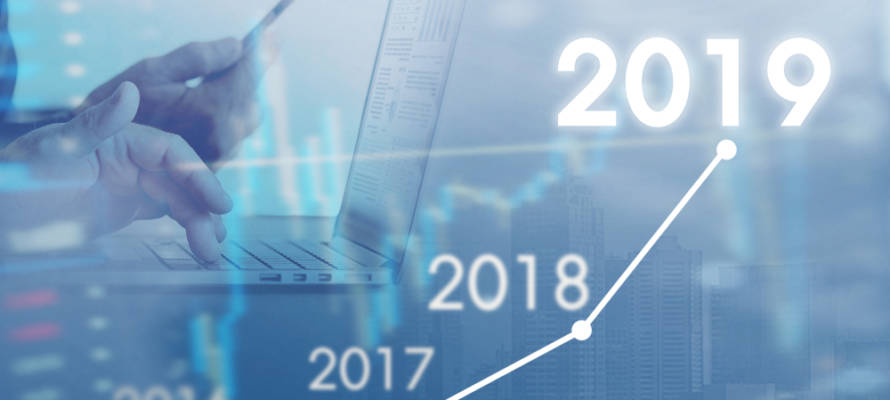Israeli innovations in Artificial Intelligence, medical cannabis, blockchain and advanced manufacturing will be among the hot sectors in 2019.
By Abigail Klein Leichman, ISRAEL21c
What are the key trends in investments in Israeli high-tech for 2019?
We asked Haggai Ravid, CEO of investment house Cukierman & Co., headquartered in Tel Aviv with offices in London, Paris, Lausanne, Hong Kong, Shanghai, Changzhou, Singapore, Italy and Poland.
“The main differences between 2018 and 2019 will be the sectors of interest to investors,” Ravid tells ISRAEL21c.
“We believe certain sectors will go out of vogue and other sectors will become trendy. For instance, the hype around crypto and digital could be replaced by the cannabis trend. Deep-tech, cybersecurity and fintech are big in Israel too.
“It’s not always about the new technologies being developed; it’s also about innovation.”
Prediction #1: US will be in an M&A mood
Ravid predicts that the United States will remain the main source of investment in Israeli companies as it has been for the past 50 years.
But he also sees a growing preference for merger-and-acquisition transactions with Israeli companies.
“The trend of listings of Israeli companies on Nasdaq will continue, with emphasis on mature companies,” he says.
Prediction #2: Shift from Europe to Far East
The European market will remain important to Israel but the level of investment will depend on the pace of economic recovery.
“The Europeans are very interested in the fields of water, automotive, life sciences, cybersecurity and more,” says Ravid. “The low valuations of Israeli startups versus their counterparts in the US and Europe also encourage European investors to invest in Israeli technologies in a variety of fields.”
However, as many European countries struggle to recover from an economic downturn, Israeli entrepreneurs are increasingly looking in the direction of huge markets and funding sources in the Far East – especially Singapore, Hong Kong, China and Japan, Ravid says.\Israel could be US-China investment bridge
Israel could be US-China investment bridge
Prediction #3: Israel could be US-China investment bridge
There’s a good reason why Jack Ma, chairman and founder of e-commerce giant Alibaba, visited Israel twice in 2018.
“In Israel, innovation is everywhere, like water and food, it’s so natural,” Ma declared at the October Prime Minister’s Innovation Summit in Tel Aviv.
While the number of Chinese investments in Israeli venture capital funds has declined overall since 2014, Tel Aviv-based IVC Research Center reports Chinese investment activity in Israeli tech startups increased over the past two years, mainly in software and life-science companies.
In 2018, Chinese investors participated in six of the 17 largest funding deals in Israel. For example, China Minsheng Financial invested $100 million in Israeli social trading company eToro.
In June, more than 500 Chinese investors had 800 one-on-one meetings with 100 Israeli entrepreneurs at the annual GoforIsrael conference initiated by Cukierman & Co. with Catalyst CEL Fund in Foshan. Results of these meetings included MicroPort of Shanghai becoming the lead investor in a September funding round for Valcare Medical of Herzliya Pituah.
Ravid says he is cautiously optimistic about 2019. He cites the “trade war” between China and the United States as one of the possible drivers.
“Israel may be used as the ‘investment bridge’ between China and the United States, and therefore there will be more interest from the Chinese side to invest in Israeli technologies. The question is whether deals will be allowed to move forward based on free-market forces.”
Ravid expects to see more Israeli companies following in the footsteps of Alma Lasers, which was acquired by China’s Fosun Pharmaceuticals in 2013 and listed on the Hong Kong Stock Exchange in 2017.
He says the Chinese are most interested in medicine, advanced production, automation and robotics — fields in which Israeli startups are considered outstanding.
Cannabis, AI, Blockchain Hot for 2019
Prediction #4: Cannabis, AI, blockchain hot for 2019
Artificial intelligence (AI) and machine learning (ML) technologies for sectors such as automotive, finance, real estate, transportation and advanced manufacturing will be high on investors’ lists in 2019, he adds.
According to IVC Research, AI is one of the biggest trends in Israeli high-tech. More than 1,200 AI companies have been established in Israel since 2010, of which 79% are still active and 6% have been acquired. Data science and chatbots/robotic assistants are increasingly part of the AI mix.
“This sector’s vital signs are positive: AI capital raising has grown significantly since 2013, both in the number of deals and amounts. AI exits in the first half of 2018 were higher than for all of 2017,” IVC reports.
IVC names Outbrain, Gong.io, Twiggle, Lemonade, Mobileye and Gett as the Israeli companies that have raised the most money in the AI sector.
Medical cannabis will continue to attract investment in Israel. Ravid pinpoints Canada, one of the largest cannabis exporters in the world, as one of the countries most interested in Israeli technologies related to growth, development and distribution of the herb.
And despite the decline in the value of Bitcoin, the demand for blockchain technologies will continue to grow, predicts Ravid.
Africa Could Be the New China
Prediction #5: Africa could be the new China
Israel has growing ties in emerging markets such as Africa and Brazil.
“In the emerging markets, Africa is becoming an attractive target and now has significant drive,” says Ravid.
In Latin America, he says, Israeli agri-tech and clean-tech technologies are in increasing demand for agriculture and water management.
“The close tie between Israel and Brazil is expected to encourage investment in Israeli high-tech, and early initiatives in the field are already gaining momentum. For example, the annual Spin Summit investment conference was held in Sao Paulo, and for the first time, Israeli startups presented themselves to funds from Brazil and the US.”
